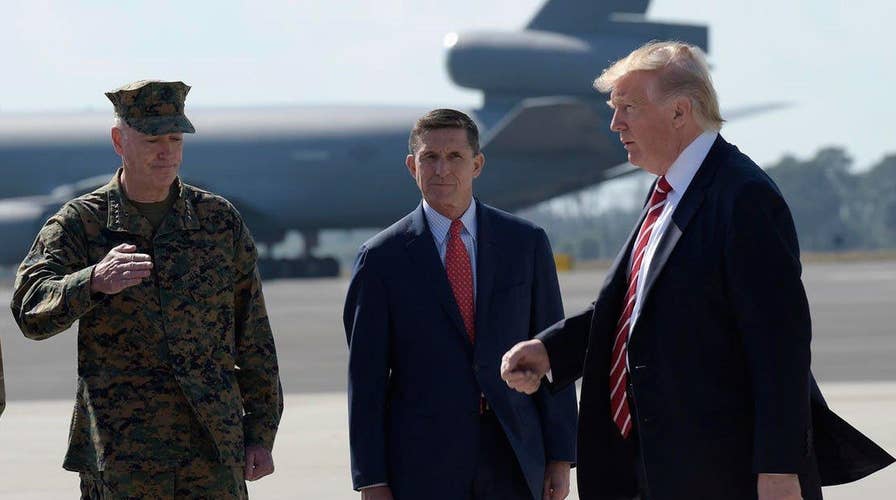Flynn's resignation: Trump scandal Dems want or leaks?
Is the now-former national security adviser's resignation over communications with Russia really much ado about nothing and just a matter of 'trust'? And what does it say when US intel is spying on our own administration?
President Trump was reportedly told six days into his presidency that his former national security adviser Michael Flynn misled the vice president about his phone calls with Russia, but did not tell his second-in-command.
Trump, after learning about the phone calls, kept Vice President Pence in the dark about Flynn’s conversations with Russian Ambassador Sergey Kislyak, the Associated Press reported Tuesday, citing White House officials.
Pence and other officials emphatically defended Flynn in the weeks leading up to his resignation.
“They did not discuss anything having to do with the United States’ decision to expel diplomats or impose censure against Russia,” Pence said in a televised interview with CBS News last month.
VIDEO: DOES FLYNN'S DEPARTURE SHED LIGHT ON A LARGER PROBLEM?
Marc Lotter, a Pence spokesman, said the vice president only became aware that he had received “incomplete information” from Flynn after the first Washington Post report last Thursday. Pence learned about the Justice Department warnings to the White House around the same time.
Pence and White House Chief of Staff Reince Priebus played an integral role in Flynn’s resignation, sources told Fox News.
The White House said earlier Tuesday that Flynn’s downfall wasn’t because he discussed the sanctions levied against Russia with Kislyak – which is a potential violation of a rarely enforced law – but the fact that he denied it for weeks and misled Pence and other senior Trump aide about the nature of the conversations.
White House officials said they conducted a thorough review of Flynn's interactions, including transcripts of calls secretly recorded by U.S. intelligence officials, but found nothing illegal.
Pence is said to have been angry and deeply frustrated over the revelations.
"The evolving and eroding level of trust as a result of this situation and a series of other questionable incidents is what led the president to ask General Flynn for his resignation," White House press secretary Sean Spicer said.
Spicer said other "questionable incidents" had contributed to Flynn's firing. According to one person with knowledge of the matter, those incidents included Flynn seeking a security clearance for his son during the transition.
Flynn, in an interview with The Daily Caller News Foundation, said Monday "there were no lines crossed" in his conversations with the Russian ambassador.
However, a U.S. official told AP that Flynn was in frequent contact with Kislyak on the day the Obama administration slapped sanctions on Russia for election-related hacking, as well as other times during the transition. Spicer said Flynn was not discussing sanctions at the president's behest.
Before he resigned Monday night, Flynn told the investigative news nonprofit affiliated with the website The Daily Caller that he and Kislyak spoke only generally about the Russian diplomats expelled by President Barack Obama as part of the previous administration's response to Moscow's interference in the U.S. presidential election.
"It wasn't about sanctions. It was about the 35 guys who were thrown out," Flynn said. "It was basically: 'Look, I know this happened. We'll review everything.' I never said anything such as, 'We're going to review sanctions,' or anything like that."
The Associated Press contributed to this report.






















